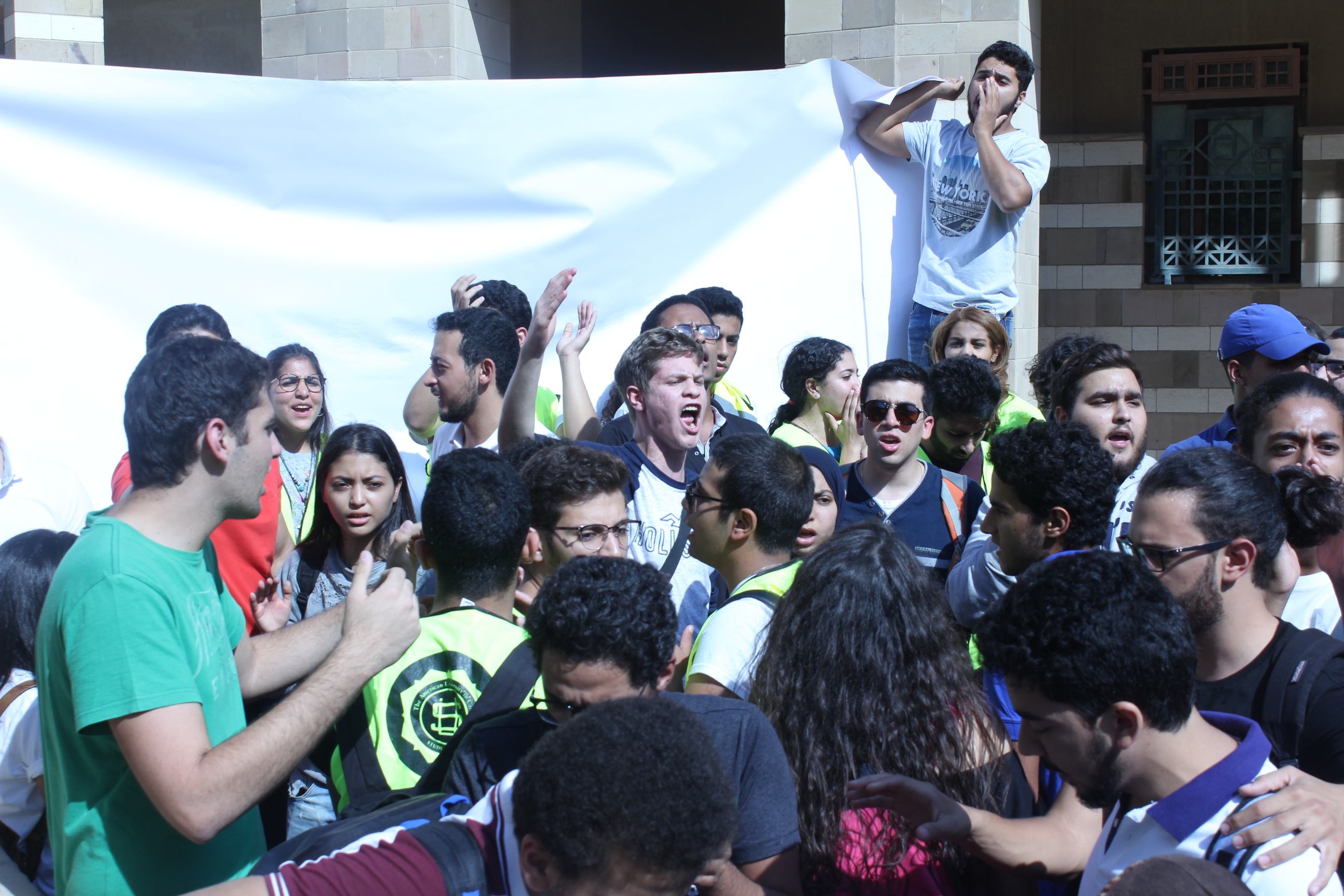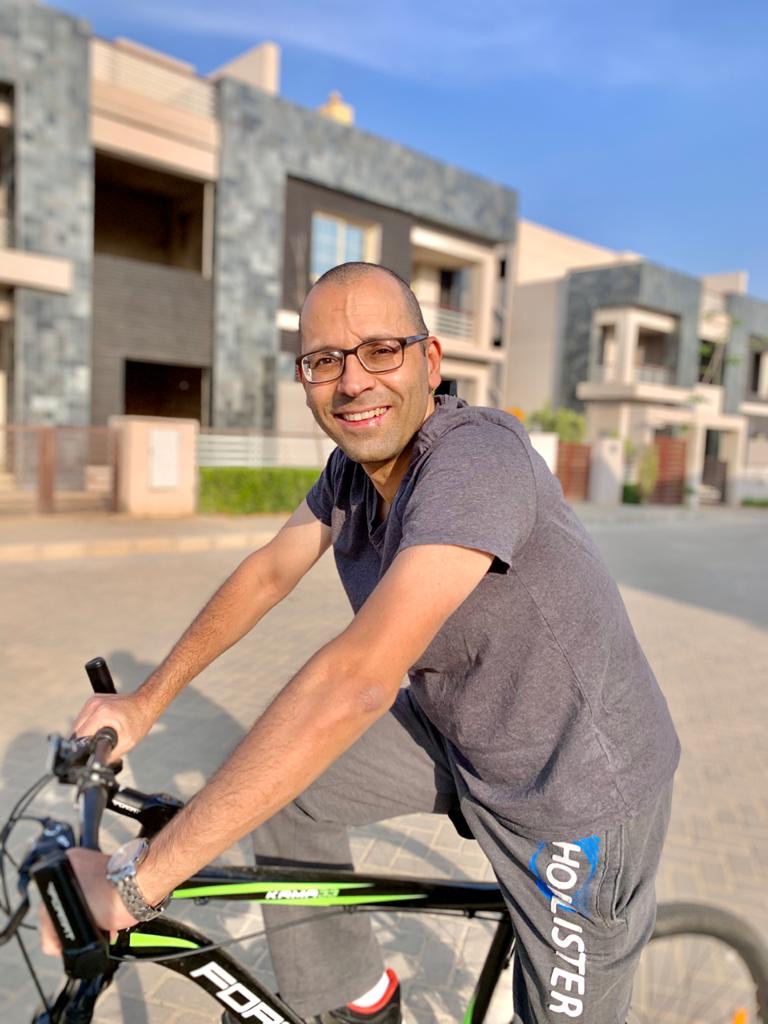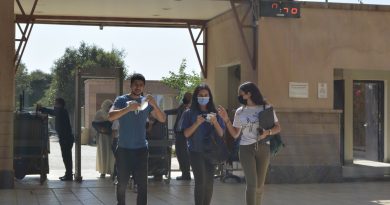Student Union March Calls for Institutional Reform
By: Ahmed Zada
Follow @ahmedzada12
The Student Union (SU) organized a march from Bartlett Plaza to the Administration Building last week, to protest a number of the administration’s policies on tuition and the decline in quality services.
The march was led by SU President Mohamed Gadalla and Vice President Ahmed Gazar, who demanded that the administration enact more effective management of the University.
Among their concerns were the lack of transparency, academic scholarships and possible violations of privacy that could arise from new security policies.
“The Union works to pressure the administration in order to implement the demands of students,” Gazzar said.
Executive Vice President for Administration and Finance Brian MacDougall said that demonstrations are a guaranteed right to all students as long as they are peaceful and purposeful.
“To talk about suppressing the freedoms of students and monitoring them are not the objectives of the administration at all,” MacDougall said.
But the students feel as though their grievances are not being heard.
“The situation is constantly deteriorating because of the policies of the administration, including the installation of surveillance cameras at the entrances and exits of the University, the increase of expenses and the prohibition of entering the university after 10pm,” Gadalla said.
However, the administration maintains that the new security measures were designed to increase safety on campus and that it has taken measures to alleviate the financial burden off students.
“After the flotation crisis, I decided to establish urgent assistance in order to help students and parents facing the wave of high prices. The university puts the interest of students in the first place so many of the plans are studied to this end,” MacDougall told The Caravan.
“Surveillance cameras were designed to increase security on campus because the safety of students is the duty of the University.”
But Gadalla told The Caravan the marches will not stop until the administration is pressured into speeding up the implementation of the SU’s demands.
He also added that students have reached a state of deep discontent as a result of a complete and total disregard of their demands and the violations of their rights on campus.
However, some students remain skeptical of the administration’s commitment to student demands.
“The university is biased towards the private interest and not to the students, and the administration deliberately disregards students’ demands to save expenses,” Majdi El Miniaoui, one of the leading members of the Black Camp of Student Activities, told The Caravan.
A number of students who spoke to The Caravan said they appreciated that there appeared to be a unified position in the ranks of the demonstrators.
A large consensus of students said that one of their main concerns was the issue of surveillance cameras on campus and how this could possibly infringe on their privacy.
“The administration should consider the interest of the students instead of monitoring them, which will reduce expenses and maintain the students’ freedom,” said demonstrator Mohamed Ashraf, an Integrated Marketing Communications junior.
When addressing the students in the march, Gazzar revealed how much time went into organizing the demonstration.
“The process is not easy, and it requires a large gathering of students in order to increase its effectiveness and the pressure on the administration,” he said.
“[We are] expecting intense negotiations with the administration within coming days to witness to find urgent solutions to the current crisis.”
The SU plans to continue cooperating with the administration and other student institutions but will also intensify their efforts on the ground.
Despite the participation of some students, others rejected the SU’s call to action, which they found to be a waste of time.
“I was frustrated by the SU’s Facebook post because of the extreme confusion and lack of a strong system in ranking the demands in terms of importance,” said Tariq Ahmed, petroleum engineering senior.




